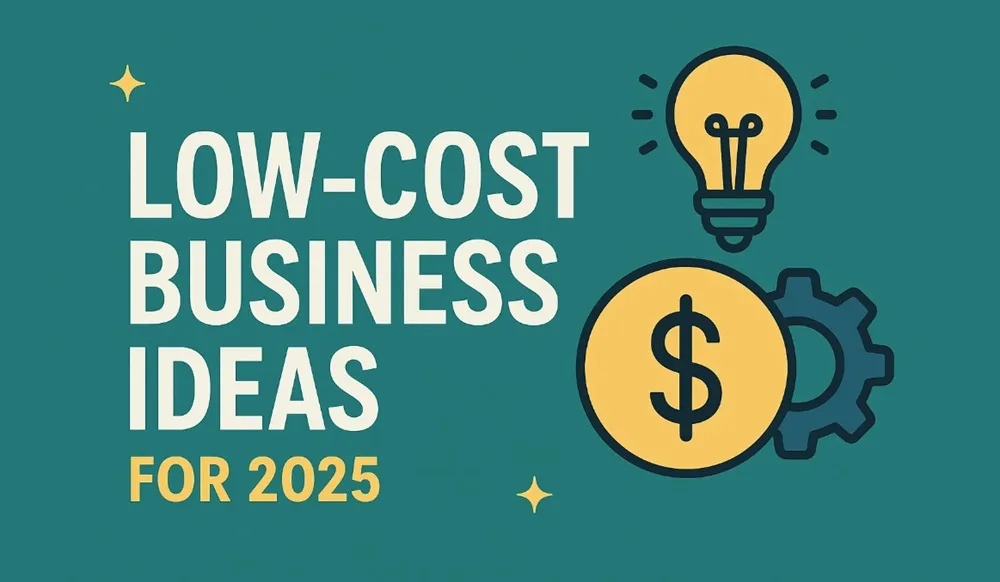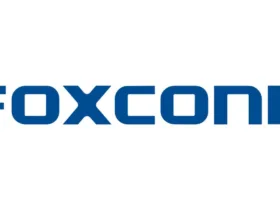Starting a business in 2025 doesn’t have to cost a fortune. With technology, online platforms, and growing demand for personalized services, there are plenty of affordable ways to become your own boss. Below are 10 low-cost business ideas that are perfect for beginners, along with tips to get started. These ideas require minimal upfront investment, often less than $1,000, and can be launched from home.
10 Low-Cost Business Ideas for 2025
1. Freelance Content Creation
What It Is: Writing blog posts, social media content, or marketing copy for businesses.
Why It Works in 2025: Companies are investing heavily in online presence, and quality content is in high demand.
Startup Costs: $100–$300 (laptop, internet, optional website).
How to Start:
- Create profiles on freelance platforms like Upwork or Fiverr.
- Build a portfolio with sample blog posts or social media captions.
- Reach out to small businesses in your network offering your services.
Tip: Specialize in a niche like tech, health, or sustainability to stand out.
2. Virtual Tutoring or Online Courses
What It Is: Teaching subjects like math, languages, or coding online, or creating digital courses.
Why It Works in 2025: Remote learning is still growing, and people want personalized education.
Startup Costs: $50–$200 (webcam, microphone, Zoom subscription).
How to Start:
- Sign up on platforms like Tutor.com, Preply, or Udemy.
- Advertise your skills on social media or community boards.
- Create short, engaging courses on topics you know well.
Tip: Offer group classes to increase earnings without extra time.
3. Social Media Management
What It Is: Managing social media accounts for small businesses, creating posts, and growing their followers.
Why It Works in 2025: Small businesses need help staying relevant online but often can’t afford big agencies.
Startup Costs: $0–$100 (scheduling tools like Hootsuite, optional design software like Canva Pro).
How to Start:
- Learn basics through free online resources like HubSpot Academy.
- Offer to manage accounts for local businesses at a discount.
- Use free tools to create sample content to show potential clients.
Tip: Focus on platforms like TikTok or LinkedIn, depending on your target clients.
4. Print-on-Demand Store
What It Is: Selling custom-designed items like T-shirts or mugs) through platforms that handle printing and shipping.
Why It Works in 2025: E-commerce is thriving, and people love unique, niche products.
Startup Costs: $50–$200 (design software, website domain, advertising).
How to Start:
- Sign up with a platform like Printful or Teespring.
- Create designs using free tools like Canva or GIMP.
- Set up a store on Shopify or Etsy and promote through social media.
Tip: Target specific groups, like pet owners or gamers, with your designs.
5. Virtual Event Planning
What It Is: Organizing online events like webinars, workshops, or virtual parties for businesses or individuals.
Why It Works in 2025: Hybrid and virtual events are still popular for cost savings and global reach.
Startup Costs: $100–$300 (website, Zoom Pro, marketing).
How to Start:
- Learn event planning through free YouTube tutorials.
- Offer services to nonprofits or startups for experience.
- Network with speakers or entertainers to build a contact list.
Tip: Bundle services like promotion and tech setup to add value.
6. Home-Based Baking or Catering
What It Is: Selling homemade baked goods or small-batch meals locally or for events.
Why It Works in 2025: People crave artisanal, locally made food, especially for special occasions.
Startup Costs: $200–$500 (ingredients, packaging, permits).
How to Start:
- Check local laws for home kitchen regulations.
- Start with simple items like cookies or meal prep boxes.
- Promote on Instagram or local Facebook groups.
Tip: Offer dietary options like gluten-free or vegan to attract more customers.
7. Digital Marketing Consulting
What It Is: Helping businesses improve their online ads, email campaigns, or search engine rankings.
Why It Works in 2025: Digital marketing is essential, but many small businesses lack expertise.
Startup Costs: $100–$300 (website, tools like Google Analytics, certifications).
How to Start:
- Take free courses on Google Ads or SEO from Coursera.
- Offer free audits to local businesses to showcase your skills.
- Create a LinkedIn profile to attract clients.
Tip: Start with one service, like email marketing, to build confidence.
8. Dropshipping E-Commerce
What It Is: Selling products online without holding inventory; suppliers ship directly to customers.
Why It Works in 2025: Low risk and easy setup make it ideal for beginners.
Startup Costs: $100–$400 (website, Shopify subscription, ads).
How to Start:
- Research trending products on AliExpress or Spocket.
- Set up a store using Shopify or WooCommerce.
- Use TikTok or Pinterest ads to drive traffic.
Tip: Focus on a niche like eco-friendly products to reduce competition.
9. Pet Services
What It Is: Offering pet sitting, dog walking, or grooming from your home or locally.
Why It Works in 2025: Pet ownership is at an all-time high, and owners want trusted care.
Startup Costs: $50–$200 (supplies, insurance, transport).
How to Start:
- Get pet first-aid training for credibility.
- Advertise on Rover or local community boards.
- Offer extras like photo updates to delight clients.
Tip: Build trust with free trial walks for neighbors.
10. Handyman or Home Organization Services
What It Is: Offering small home repairs, furniture assembly, or decluttering services.
Why It Works in 2025: People want affordable ways to maintain homes or simplify their lives.
Startup Costs: $100–$400 (basic tools, transport, insurance).
How to Start:
- List services on TaskRabbit or local classifieds.
- Start with simple tasks like shelf installation or closet organization.
- Ask for reviews from early clients to build credibility.
Tip: Specialize in eco-friendly organizing to tap into 2025’s sustainability wave.
General Tips for Success in 2025
- Leverage Free Marketing: Use TikTok, Instagram, or LinkedIn to promote your business for free. Short, engaging videos get the most attention.
- Start Part-Time: Test your idea while keeping your day job to reduce financial stress.
- Network Locally: Join Facebook groups or Nextdoor to find your first customers.
- Learn Basic Bookkeeping: Use free tools like Wave to track income and expenses.
- Stay Updated: Follow 2025 trends like AI tools or remote work to adapt your business offerings.
Why 2025 Is a Great Year to Start
The year 2025 offers unique opportunities for low-cost businesses. Online platforms make it easier to reach customers, and people are eager to support small businesses offering personalized services. With a small budget, some effort, and a willingness to learn, you can turn one of these ideas into a thriving side hustle or full-time venture. Pick an idea that matches your skills and interests, start small, and grow from there!








Leave a Reply